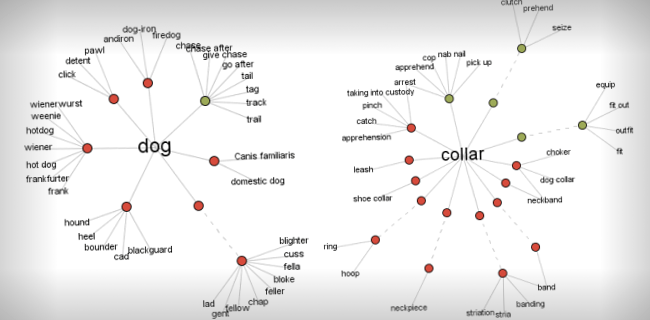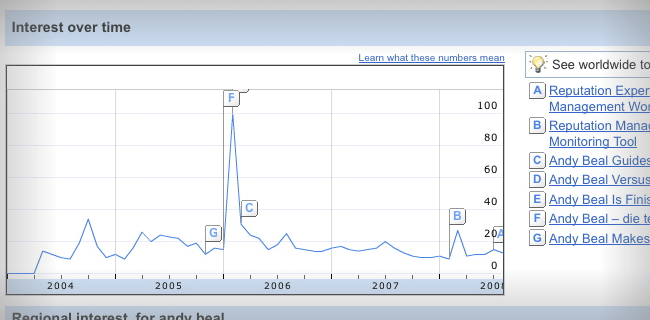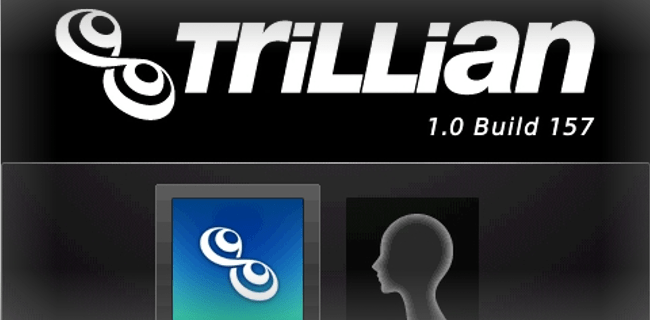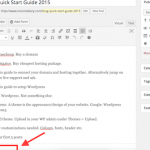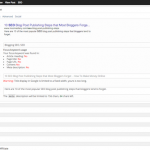
If you are not doing keyword research, you are missing out on a whole higher level of traffic. Marketers that research keywords, to find profitable search terms, are far more likely to get high ranking positions. That shouldn’t surprise anyone, considering you are taking out the guess work and going with a tried and proven technique for your SEO.
Let’s be honest.
How often do you research your keywords?
Once a month? Quarter? Year? Never?
While the term “Keyword Research” might provoke the familiar feeling of taking a nap in the back of Algebra class, it’s also the one thing that can make or break an online business.
Every successful business, online or other wise, shares one core trait, their ability to speak their customer’s language.
Keyword research is the way to learn that language and create content that people and search engines can’t resist.
Below, you’ll find a list of the 16 best resources I’ve found on keyword research. There are guides as well as tools that will help you wrap your head around keywords in a strategic way that will ultimately help you drive more traffic and make more money.
This article is structured to bring you from a beginner’s mindset all the way down the rabbit hole.
There are hours worth of materials here, so be sure to bookmark this article any time you need to reference it.
Keyword Research Process and Guides
Keyword Research: It’s Not What You Think
Resource In Question: Copyblogger
This introduction to Keyword Research is the perfect resource if you’re just beginning to get your feet wet.
It explains how the “origins” of keyword research were started by copywriters in the 1960’s to learn the language of their target market.
It’s about how finding the right words is what separates the blogger’s who receive traffic, subscribers, and shares, from those who are just clamoring for attention.
How to Do Keyword Research Like A Pro [DiY]
Resource in Question: Search Engine People
Lackluster Keyword Research can make or break a blog.
If you’re not determining what the best keywords for your topic are, you’re likely to get ranked in the search engines for irrelevant or the entirely wrong keywords. Wasting your’s and your reader’s time.
This article helps you develop a mindset that find better, low competition, high converting keywords.
How to Choose A Profitable Niche
Resource in Question: Copyblogger
This article from Copyblogger gives a real world example of honing in on specific keywords, and interpreting different phrases to find search intent.
Doing this keeps you focused on keywords that are buying signals, instead of searches that are just looking for more information.
How to Optimize a Webpage for a Keyword
Resource in Question: Search Engine People
After you’ve chosen a profitable niche, you obviously need to create content.
This article gives another method for keyword research and selection, and takes it a step further by teaching you how to incorporate said keywords into your blog.
How to Take Your Keyword Research To a Higher Level
Resource in Question: Search Engine Land
No doubt, once you’ve mastered the basics, you’ll want to improve your game.
This article gives you more advanced strategies, explains search intent and helps you categorize your keywords accordingly.
It also goes into detail on the difference between long tail and medium tail keywords and what you can do to make them support each other.
Do you Make these 13 Keyword Research Mistakes?
Resource in Question: Leaving Work Behind
Simply put, things to look out for.
Many of the mistakes in this article are very easy to make.
For Example: Relying on Broad and Phrase Match searches do not give you an accurate estimate of search on a given term. When using Exact, you’ll get a much more accurate (albeit maybe less impressive) list of results.
Avoid these mistakes to create accurate and effective keyword lists that will make you money.
Keywords Forensics: Research Search Terms That Others Miss
Resource in Question: Search Engine Watch
John Alexander of Search Engine Academy explains Keyword Forensics as a way to survey keyphrases as they have been input by users in an attempt to identify a user behavior, then create very specific content on your site to serve these needs.
For Example: Words like Review, Study, Statistics, Rare, Find, Discount, Wholesale, Pattern, Maps, Supply, Supplies, Old, New, Pricing, and Recipe reveal a buying intent in some way or another.
The idea is using the searchers intent, you can position yourself as an authority in the context of what they’re looking for, and stand a much better chance of converting cold traffic into sales.
How to Find Content Topics That Score Big Using Keyword Research
Resource in Question: Copyblogger
After finding your keywords, at some point you’re going to have to create content, no way around that.
This article from Copyblogger shows you how to use Alternative Keywords to create content that reaches new audiences. Then it gives you a couple of ideas for contacting other websites that could link to your content.
After all, if nobody is seeing what you write, it kind of defeats the purpose, right?
15 Ways to Brainstorm Keyword Ideas (And Jumpstart your Brain)
Resource In Question: Niche Pursuits
After a while, Data Diving turns your brain into a puddle of Jello.
This is an excellent and practical list of suggestions to help you reboot your mind and draw inspiration for keyword ideas in some of the most mundane and often unlikely of places.
After reading this article, you’ll never look at the world around you the same way again.
How To Use Delicious For Business
Resource in Question: Hubspot
While this article doesn’t go into huge detail about using Delicious (A social bookmarking site) for keyword research, it does give an overview of how it can be beneficial to your efforts.
For Example: Using the tag search for marketing we can find all of the most popular links in the category. By scrolling down the page, we can see that “marketing” has 24,282 pages of material containing that tag. By viewing the tags that also associated with the “Marketing” tag, we can find the other “keywords” that real people often associate with our given term.
Keyword Research Can Help Make You Money
Resource in Question: Copyblogger
This is where we start to get into the real juicy stuff. Once you’ve been discovering what people are going to be searching for, and you’re creating content that corner’s the market in your area, it’s time to make some money.
Copyblogger hones in on doing keyword research for product reviews that you can use affiliate links to sell stuff on your blog, and make a commission.
Keyword Research Tools
Below is a list of free keyword research tools that will give you insight into search volume, competition, and ranking difficulty.
With each tool listed below, you’ll find 3 things.
- A link to the tool
- A link to the best free tutorial
- The length of the tutorial in (mm:ss)
Google Keyword Tool
The Tool: Google Keyword Tool
Resource in Question: Google Keyword Tool Tutorial (40:49)
Search keywords you’ve brainstormed by Broad, Exact, and Phrase Match to get a rough idea of the search volume and traffic for any keyword.
The tool also gives you recommendations for related keywords that you may also be able to use in your campaigns.
Note: Be sure to use advanced functionality like “Include Phrase” & “Exclude Phrase” as well as setting your Region, Language, and Device to get the most accurate data possible
WordTracker
The Tool: WordTracker
Resource in Question: Your first week with WordTracker (Playlist: 7 videos)
One of the most highly recommended keyword research tools among industry experts.
WordTracker doesn’t just generate a list of keywords, it helps you identify the best keywords for your niche.
It has a number of built in tools like the Keyword Effectiveness Index to help you determine whether key phrase is worth your time or not.
It is free for 7 days, and comes with $136 in free bonuses. After the trial period is up, that membership increases to $69.00/mo.
Google Insights
The Tool: Google Insights
Resource in Question: Google Insights for SEO campaigns (4:14)
Google Insights is like a crystal ball for your keyword campaigns. Plug in a key phrase and check out search trends for the term.
Insights shows you search trends as broad as the world to as narrow as your nearest metro region.
If you’re running a local business, or your website’s traffic is regionally based, this tool will be among the most important in your toolbox to ensure you’re not wasting your time on terms that aren’t trending.
Spyfu
The Tool: SpyFu.com
Resource in Question: Spyfu Kombat
At some point, you’ll realize you’re not the only catering to your target market. Spyfu is a competitive keyword analysis tool that lets you to “spy” on the competition.
Use “Spyfu Kombat”, to let them do the research for you. Learn what keywords they’re targeting for both paid and organic content. Then beat them in their own territory.
Spyfu is free to use, mostly. Reports are limited for free users, and for $79/month you can get full access to entire keyword lists. It may be expensive for some, but with the full reports you can find comprehensive lists of the “low hanging fruit” every single one of your competitors are going after.
Bonus Tool: Keyword Discovery by Trillian
The Tool: Keyword Discovery
Resource in Question: A review by Jon Morrow
This is a keyword tool designed for those who are fanatical about keyword research.
Keyword Discovery collects data from over 200 search engines to give you the most well rounded picture of what people are searching for.
They also gather data from shopping sites like Amazon, Ebay and others to show you products people are buying related to your keyword.
It’s interface is deceptively simple, it’s searches are incredibly fast, and it’s data is deadly accurate.
Now for the bad news… It’s expensive. A basic plan goes for $69.95/month or $599.40/year and to get access to the full range of tools, you’re looking at $199.95/month or $1,895.00/year
Keyword Discovery isn’t for everyone, but if you’re looking to make serious money online it’s the only one you should look at building your self up to.
There you have it
16 Resources to get you on the right track, find a profitable niche, or at the very least get you more focused in your efforts.
I know the idea of spending hours writing down words on a spreadsheet might leave you drooling at your desk, but it seriously can make the difference between 10 visitors and 1,ooo.
It’s the foundation for creating content that sells, stands out, and answers the exact problems your prospective customers might be looking for.
So the question now is, what are you going to do?

